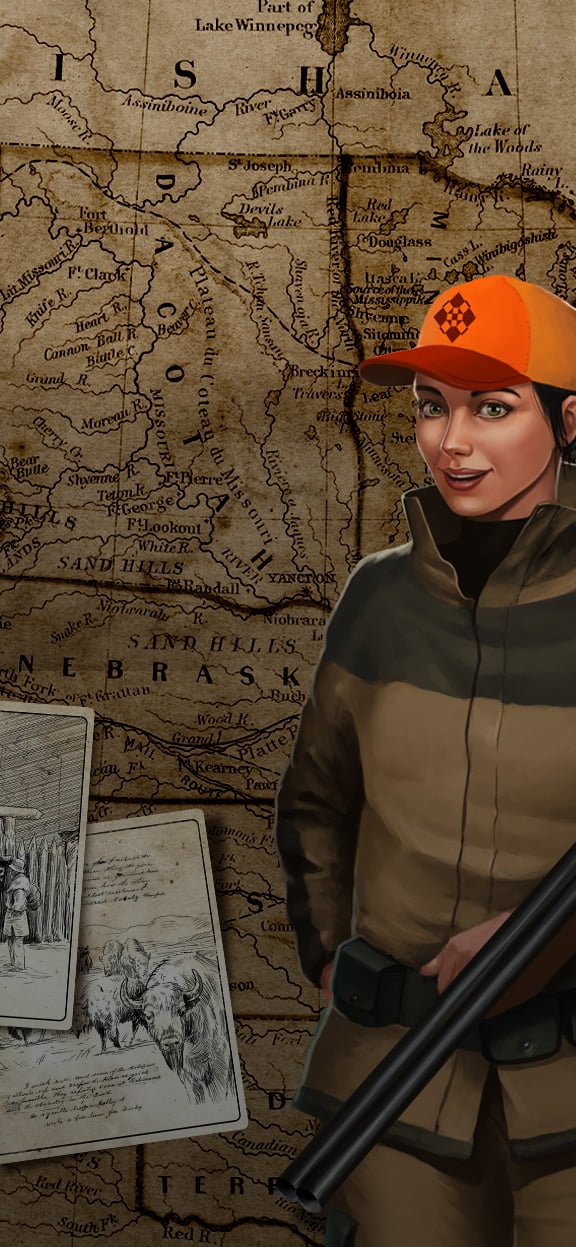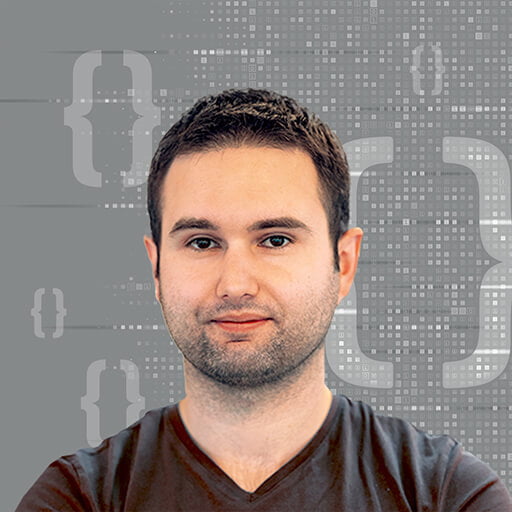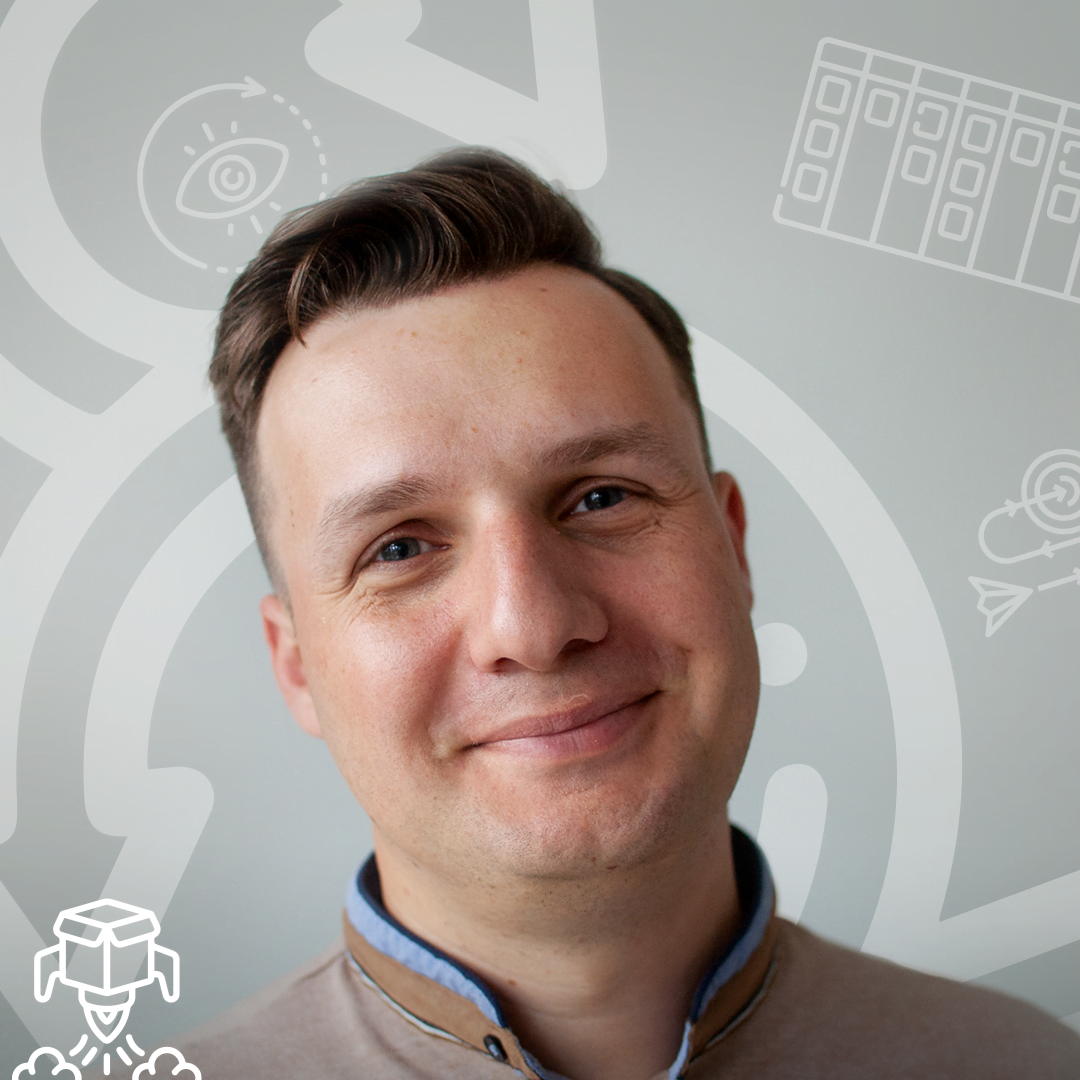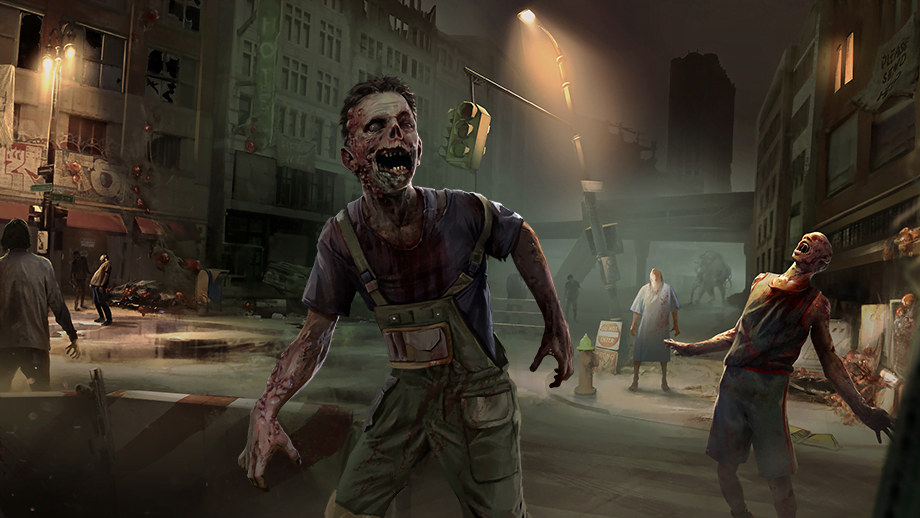



Have you ever wondered what the difference between working at a game development company and working in a software house is? Can regular programmers find their place in the game dev industry? We talked with our developers Paweł Szpiczakowski and Mateusz Kaleciński about how one can change industries and find their dream job as a game developer.
First off, please tell us how did you both become game developers?
Paweł: I started my adventure with game design in college. I became interested in 3D graphics, and I planned to get involved in the production of films, commercials, and special effects. I liked “code writing,” so I took the first simple game engine, Game Maker, and started making games. I released my first game on the Google Play Store after about half a year, and it was only a hobby at that time.
I started working as a Python Developer during my last year of college. Still, I devoted my free time to learning about game development, touching more and more aspects of design, and facing various technical problems. I switched to Unity with time, and one day I decided to go to my first game pit – in Poznań. After 48 hours, I managed to take 3rd place and have become fixated on these events, so much so that for the next six months, I went to every game jam in Poland, week after week. Finally, after about half a year, I got a question from one of the participants – “hey, I saw that you work at Nokia, wouldn’t you prefer to make games?” So here I am.
So far, I have been able to participate in the production of over 200 games for Android and iOS. I was in the concept and production phases, publication, and even product maintenance. I have been co-organizing the Wrocław Sensei Game Jam for the last four years, and this year I became president of the Association of Polish Game Developers – Sensei. Before this, I was a juror at various game dev events or mentor for university teams. I’m still very active in the game jams, so you can catch me at many of these events and even make a game with me.
Mateusz: I’ve always been interested in games, but despite the will, my attempts to create mods for existing games usually ended with the idea. Thanks to the TK Games Science Club, I got to know real game dev while studying at the Wrocław University of Technology. Together with a friend, a graphic designer, we took part in an internal game jam to create an endless runner game. We decided to develop the Construct 2 engine because of almost zero programming experience.
We decided to capture the moment when the One Ring from The Lord of the Rings fell into the lava in Mount Doom. We steered the ring, and our task was to avoid – NOTE – Gollum’s fingers. Unfortunately, we didn’t win this game jam.
In the second edition, we made a 2d platformer puzzle, in which we could control two characters by switching the control context of a specific button. We added a few rules that manipulate the game physics depending on the characters’ location, several levels, and voilà! We continued this streak, and soon after expanding the line-up with an extremely talented designer, we made our first Unity game for mobile platforms – Spellcasters.
This project, surprisingly, reached over 100,000 unique users. I think that this ultimately confirmed my belief in the desire to create games professionally. Later it went downhill.
If I was a developer whose dream it was to be in a game (dev), what would you advise me?
M: The answer depends on advancement and experience, but the first step connects both paths. Download Unity – one of the most popular game engines and start making clones of famous games and mechanics. There is a lot of material on the web, Unity itself, at the beginning of the pandemic, released high-quality tutorials, previously available only to subscribers of premium licenses. It is important that you increase the difficulty of subsequent projects, create challenges for yourself, understand the implemented solutions well, and develop in-depth knowledge.
Maybe one of your projects will evolve into a Pet Project – you can be sure that we will ask you about it during the recruitment interview. Of course, at the very beginning, I should have mentioned that TSG needs skilled developers. So, if you know how to program, you have knowledge about data structures and algorithms, but you don’t have much experience in Unity and want to learn, then it is worth giving it a try.
P: According to my own experience, I can say that to enter the game dev industry as quickly as possible, you have to start building a portfolio. The best opportunity for this will be game jams (local and online), where we will make a game on a given topic within 48 hours. If we don’t have a team, nothing is lost. Some people try their hand at solo, and some like you will only be looking for a band at the event. After a few such game jams (practically every week), you have a few games in the portfolio, so it’s a good start to start your career in the game dev industry.
What tools, languages, and frameworks should a developer know if they want to work in game dev?
P: As for the frontend, the leading game engines used in the industry are Unity (C #) and Unreal Engine (C ++), so learning them is crucial to enter game dev. On the backend, we will mainly deal with Java. If we already know a programming language, the frameworks will certainly be worth getting interested in at the beginning, making your first game to see if it is something for us. Most programming languages already have game libraries where we can make a simple solitaire or snake. It is worth noting that at present the game engines – Unity and Unreal Engine – have block systems. By combining several such blocks, we can create our first implementations, so the threshold for entry into learning and development in this direction is very small.
M: On the frontend side, mentioned repeatedly, Unity should be the first choice. We program in C #. I believe that at the beginning it is worth getting to know one engine well and deepen your knowledge of programming architecture, rendering, physics, etc. A good background of knowledge will facilitate learning about other technologies, such as Unreal Engine or Godot. As we work on games in the client-server architecture at TSG, we also need backend users. That’s where we program in Java. Knowledge about Redis, Postgres, and protocol buffers will also be useful.
What do you think is keeping developers from stepping into the game dev industry?
Mateusz Kaleciński: I think that programmers are being held back by their earlier decisions. It sounds very simple, but I think many programmers who want to make games are afraid to go through the whole process of gaining experience from scratch. However, I can assure that during the interviews, we try to decide whether the candidate is a good developer rather than whether he has knowledge of all engine functionalities.
Paweł Szpiczakowski: I would say this in one word – creativity. The game dev industry is a creative industry on every level. Games are meant to be fun, players must have fun playing, we must often evoke emotions in them – both positive and negative. We will not encounter this when programming websites or programs, so programmers may be afraid that they have no experience in this field, but remember that we learn it just like any other thing. From year to year, players demand more and more from games – better graphics, larger worlds, or greater possibilities of interacting with it, often maintaining support for phones from 10 years ago.
So is game dev a perfect branch for juniors? Would it be too hard for mid’s and seniors to change industry and working habits?
P: The demand for employees at Ten Square Games is present at every level. When developing current products and creating new ones, we need juniors, mid’s, and top-level specialists. There is plenty of work, ideas, and problems to be solved.
M: There is something for everyone. Juniors and midges will find experienced developers (some of them still worked in our class), with whom they will develop. Seniors will have a unique opportunity to work on projects with DAU (daily active users) of up to 500,000. This is convincing enough for me.
Is it easy or rather difficult to find a job in game dev today?
M: This, in fact, is not an easy question. There is a lot of work. We are constantly recruiting, but as mentioned, we are looking for good programmers. It’s easy to find a job, but you have to try hard to get it. But where there’s a will there’s a way, as a wise man said: there are no problems, only challenges!
P: Currently, in terms of game dev the labor market is very lucrative. There is more and more work from month to month, and companies don’t stop. The lockdown caused by the current situation has affected the entire gaming market. Our players now spend more time playing our products, so the demand is very high, followed by greater demand for employees. We are looking for developers in various positions with different experiences.
What are the differences between working in a game development company and a software house or startup?
P: At Ten Square Games, we are in a very stable market position, where we can allow ourselves to make quite risky decisions, we can often experiment and not be afraid to fail, from which you can learn a lot. At TSG, we produce and release games ourselves, which gives us virtually full autonomy, so we have a wide range of possibilities. Each employee can come up with an idea to implement a functionality – we can implement it, test it, and decide on its further fate.
M: No worries about investors, developing an internal product, more time to develop, and iterate ideas. And above all, work in permanent teams. I know that a lot of software house developers complain about teams that change every month.
And the community? In your opinion, is it open, active? Is this an essential factor when choosing a new career path?
P: The game dev industry community is open to anyone who wants to see how games are made. Simply go to any game jam with no experience in any aspect of game development and ask for help or join a team. Everyone will be happy to help, provide feedback, or teach us a given program. In larger cities in Poland, local editions are organized, where we can physically come to such an event and have fun. There are also online editions attracting fans from all over the world. After the event, participants can play their games together, leaving feedback for the creators. At universities, there are dynamic scientific clubs that bring together people, create games and share knowledge, often organizing lectures with people from the industry.
M: The community is the strongest side of game dev. At TSG, we work in project groups – programmers, designers, graphic designers work on one product. We feel responsible not only for our part of the work but also for the result. We are a group of gamers. And our passion can definitely be noticed.
The article was originally published on justgeek.it portal on 14th of November 2020.

The Growth Team at TSG thrives in a fast-paced, dynamic environment, continually driving user expansion…
read more
Is working as a developer in the gamedev sector different from working in other branches…
read more
As an Agile Coach, I am on a mission to make the company more agile…
read more
We have great news – we are working on a new title – Undead Clash.…
read more